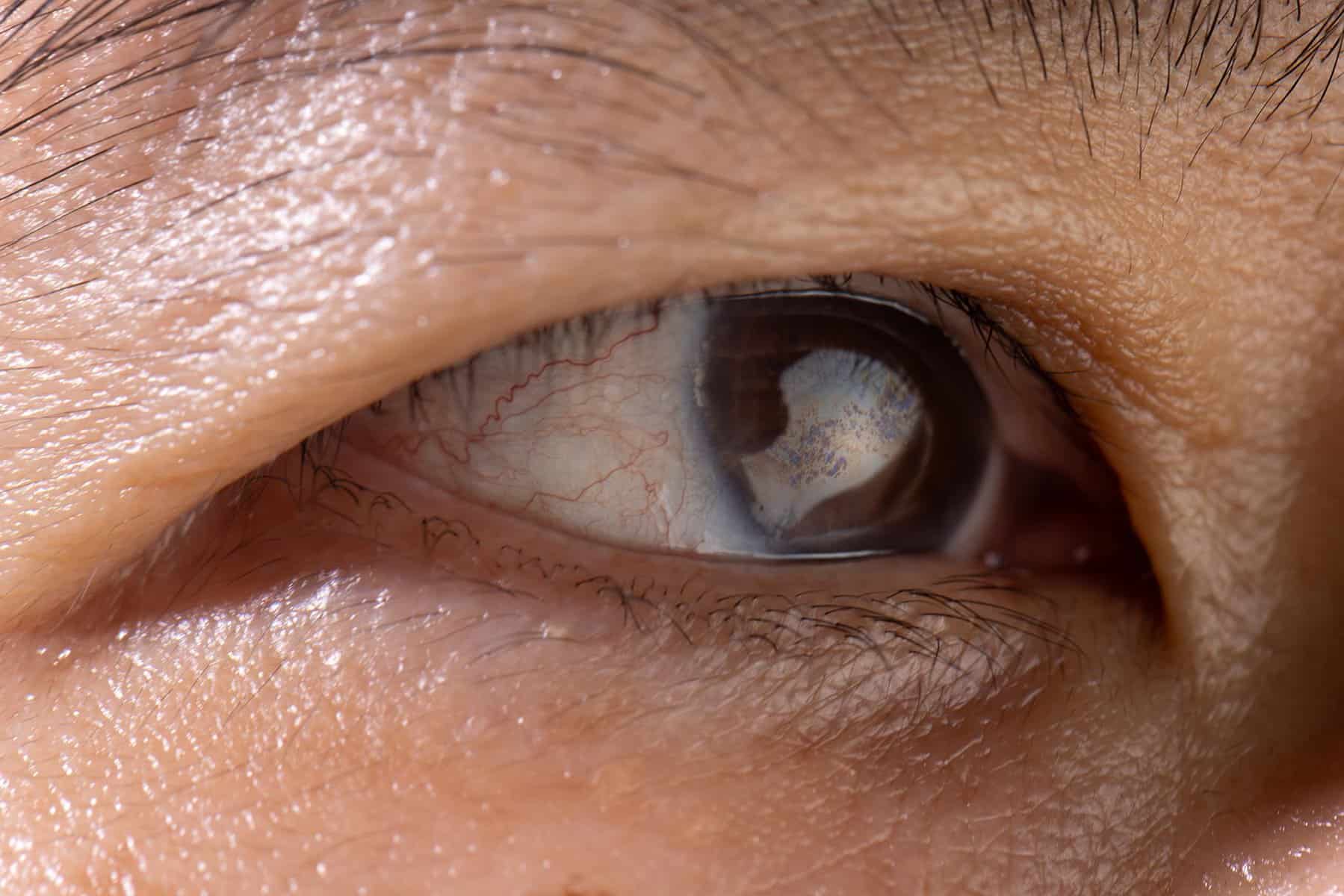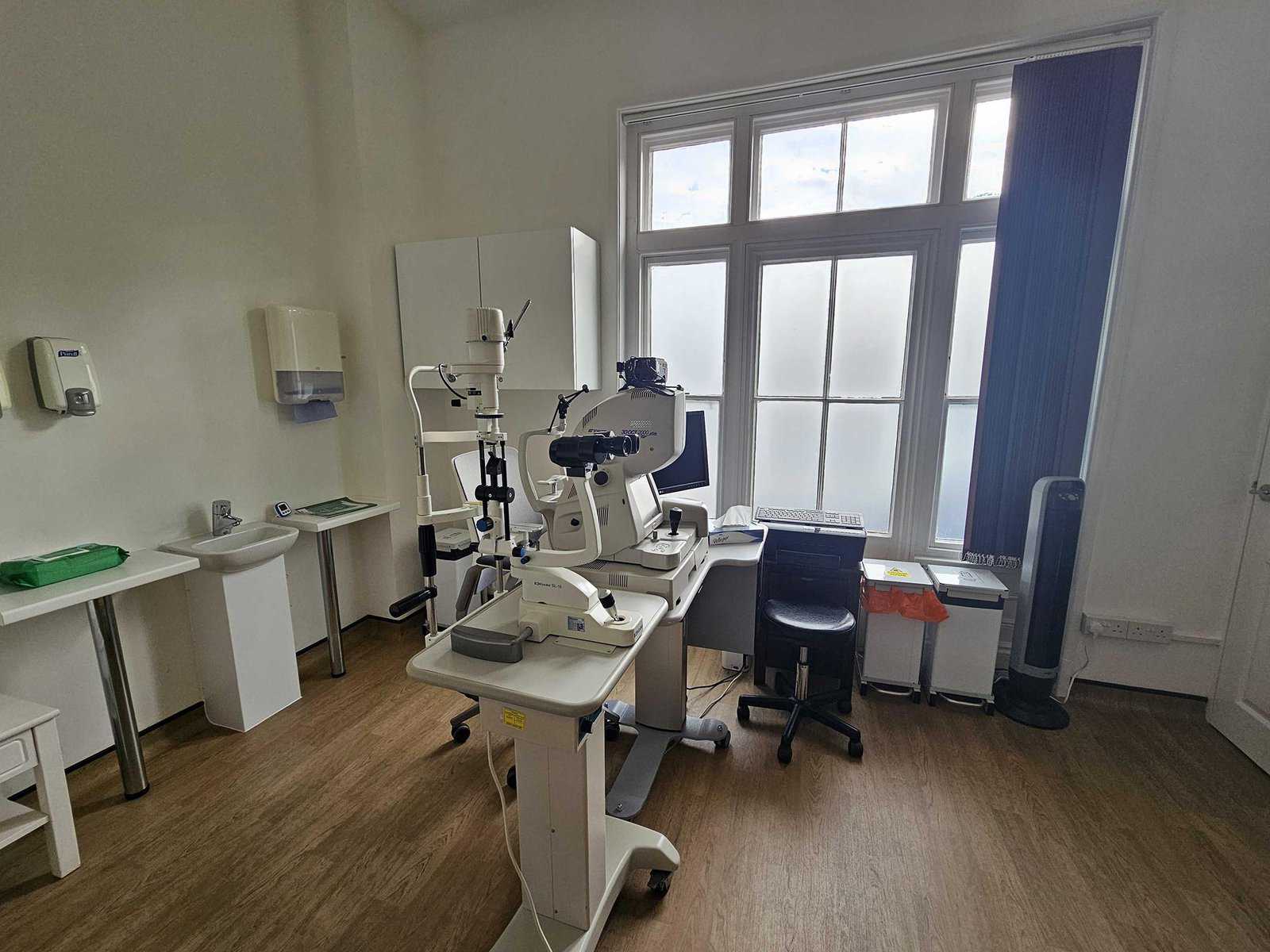Effective Treatment for Floaters (Posterior Vitreous Detachment)
Regain clear vision and comfort with expert care for Floaters (Posterior Vitreous Detachment) at The Forbury Clinic. Submit an enquiry for a consultation and explore our advanced treatment options.

Overview
Floaters, often caused by posterior vitreous detachment (PVD), are small specks or cobweb-like shapes that drift across your field of vision. While they are usually harmless, they can be bothersome and sometimes indicate a more serious eye condition. Early diagnosis and treatment are essential to ensure they do not affect your vision significantly. At The Forbury Clinic, we specialise in diagnosing and treating floaters with personalised care and advanced techniques. Contact us today to learn more and schedule a consultation.


What is Posterior Vitreous Detachment (PVD)?
Posterior vitreous detachment (PVD) occurs when the vitreous, a gel-like substance in the eye, separates from the retina. This is a natural part of aging but can lead to the appearance of floaters in your vision. Floaters are small clumps of cells or strands of vitreous that cast shadows on the retina. Common symptoms of PVD include the sudden appearance of floaters, flashes of light, and in some cases, a dark curtain or shadow in the peripheral vision, which may indicate a more serious condition like retinal detachment. PVD itself is usually not sight-threatening, but monitoring and management are crucial.
Causes and Risk Factors
Causes
Posterior vitreous detachment (PVD) and floaters can develop due to various factors:
Aging:
The vitreous gel naturally shrinks and pulls away from the retina as we age, leading to PVD.
High Myopia:
People with severe nearsightedness are at higher risk.
Eye Injuries:
Trauma to the eye can precipitate PVD.
Inflammation:
Inflammatory conditions of the eye can cause PVD.
Previous Eye Surgery:
Surgeries like cataract removal can increase the risk of PVD.
Risk Factors
Age:
PVD is more common in individuals over 50.
Myopia:
High degrees of nearsightedness.
Eye Surgery History:
Previous cataract or other eye surgeries.
Inflammation:
Chronic inflammation within the eye.
Understanding these causes and risk factors helps in the early diagnosis and effective management of floaters and PVD, improving patient outcomes.
Diagnosis
Diagnosing floaters and posterior vitreous detachment involves a comprehensive evaluation at The Forbury Clinic. The diagnostic process includes:
- Initial Consultation: Discussing symptoms, medical history, and potential risk factors with a specialist.
- Visual Acuity Test: Assessing the clarity and sharpness of your vision.
- Dilated Eye Exam: Using drops to dilate the pupils and examine the vitreous and retina for signs of PVD and floaters.
- Optical Coherence Tomography (OCT): Imaging the retina to detect any changes or detachments.
- Ultrasound: In some cases, an ultrasound may be used to view the vitreous and retina more clearly.
These steps ensure a thorough and accurate diagnosis, aiding in the development of an effective treatment plan.

Treatment Options
Based on the diagnosis, various treatment options for floaters and posterior vitreous detachment may be considered:
- Non-Surgical Options
- Laser Treatments
- Surgical Options
- Innovative Treatments
Observation:
Monitoring the condition, especially if floaters are not significantly affecting vision.
Vision Aids:
Providing recommendations to help cope with floaters, such as using proper lighting and wearing sunglasses.
Laser Vitreolysis:
Using a laser to break up larger floaters, making them less noticeable.
Vitrectomy:
Removing the vitreous gel along with the floaters and replacing it with a clear solution. This is considered when floaters severely impact vision.
Advanced Imaging Techniques:
Utilising the latest imaging technology to precisely map the vitreous and retina for targeted treatment.
At The Forbury Clinic, our multidisciplinary team ensures that each patient receives the most appropriate and effective treatment, tailored to their specific needs and health goals.
Managing Floaters and PVD
Managing floaters and posterior vitreous detachment involves a combination of medical treatments and lifestyle adjustments to control symptoms and improve overall quality of life. At The Forbury Clinic, we provide comprehensive care and guidance to help manage these conditions:
Regular Monitoring:
Scheduling frequent check-ups to monitor the progression of PVD and the impact of floaters on vision.
Healthy Habits:
Maintaining a healthy diet and managing underlying health conditions to support overall eye health.
Protective Eyewear:
Using sunglasses and other protective eyewear to minimise the impact of floaters.
These management strategies aim to complement medical treatments and provide a holistic approach to improving eye health and overall well-being.
Complications and Prognosis
While many cases of floaters and PVD can be managed effectively, it is important to be aware of potential complications and the prognosis:
Complications:
- Retinal Detachment: In rare cases, PVD can lead to retinal tears or detachment, which is a serious condition requiring immediate treatment.
- Persistent Floaters: Floaters can sometimes remain in the field of vision and may require further treatment.
Prognosis:
The prognosis for patients with floaters and PVD is generally good, especially with early detection and appropriate management. Most individuals experience an improvement in symptoms over time. Regular follow-ups and ongoing management are crucial to prevent complications and ensure optimal eye health.


Why Choose The Forbury Clinic?
Choosing The Forbury Clinic for your floaters and PVD treatment ensures you receive exceptional care from a team of experienced specialists. Our clinic is renowned for its expert medical staff who are dedicated to diagnosing and treating eye conditions with precision and compassion. We use state-of-the-art diagnostic tools and the latest medical advancements to provide accurate diagnoses and innovative treatments tailored to your specific needs. Our patient-centered approach prioritises your comfort, privacy, and overall well-being, offering comprehensive support throughout your treatment journey. At The Forbury Clinic, you can trust that you are in capable hands, with a dedicated team committed to helping you achieve optimal eye health and a better quality of life.
